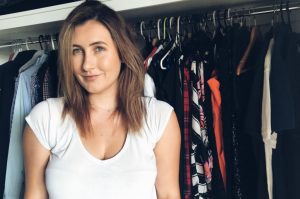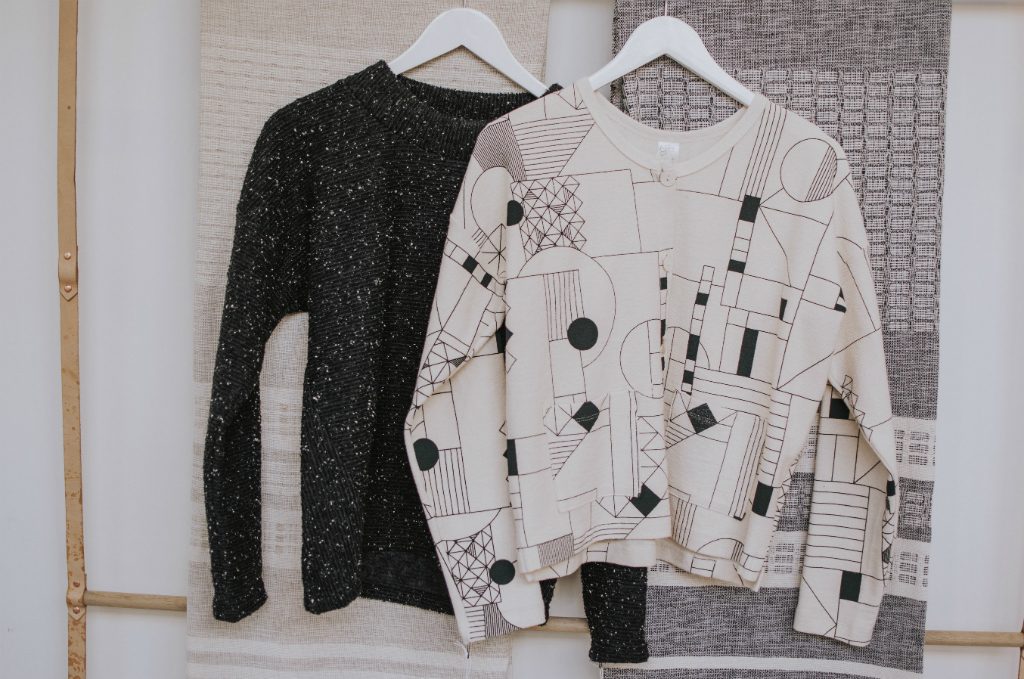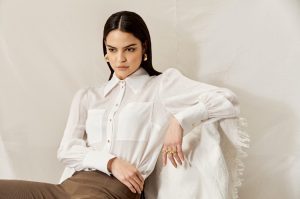They say you should practice what you preach, and Brisbane fashion photographer and sustainability advocate Ashley Conway is doing just that. She’s made a pledge to buy no new clothes for a whole year, with the goal of changing her fashion consumption habits, and learning some new skills on the sewing machine. I knew my readers would be inspired by this bold move by Ash (as much as I am), so I asked her a few questions about the pledge and how it’s going.
Explain your pledge:
I made a pledge at the end of last year to challenge myself to a year without buying any clothes, to make or mend anything I needed to in an attempt to understand my relationship with the fashion consumerism cycle. I knew on an academic level the emotional and subconscious effects of consumerism and wanted to ‘practice what I preached’ when it comes to sustainable buying practices. Going cold turkey would be the best way to test my convictions.
What inspired you to set this goal for yourself?
I am lucky enough to be able to work with a very inspiring lady, Jodie Hilton from The New Garde who has actually first told me about this and who inspire me to give it a go for myself. Also, I really wanted the opportunity to up skill and learn how to mend and basic sewing, a skill which I think has unfortunately been lost due to availability of cheap fast fashion, why fix something when you can just buy something new.
How often do you usually buy new clothes?
I used to buy clothes a couple of times a month, not very often I found I always was on the hunt for something new. If I had a special event or occasion I definitely needed to buy something new.
How much money per year do you think you would spend on clothes?
I have no idea to be honest and I am kind of scared to try and work it out hahah.
Has this experience so far made you aware of anything?
It has only been a couple of months but I have noticed just how much time and thought it consumed, now that I am conscious of it. It surprises me how much time I spend looking for things to buy or thinking about what I wanted to purchase next.
Also, I do pretty much wear a couple of things in rotation.
Is there anything else you’ve noticed?
I have noticed that I wear more of the clothes that have significant meaning to me. For example I love wearing band t-shirts and I find that I always go for my Guns ‘n’ Roses shirt that I bought at the concert. They are my one of my favourite bands but I think the real reason I love it so much is because I went to that concert with my Dad so it has a really great memory attached to it.
Has your desire to buy decreased or increased during this time?
It definitely comes in waves, sometimes its really easy and sometimes its a bit more challenging. Especially because my work involves photographing new clothes every week there is definitely a lot of temptation there but I feel like I am slowly detoxing and it is becoming easier and easier to resist.
What are the most important items in your wardrobe now?
Most important items for me are jeans and T-shirts, they are very versatile and I can pair any of my shirts (plain and band tees) with my jeans. And shoes of course, I have always loved shoes and find I can express my personality through bolder shoe options while wearing my jeans and tees.
Do you think you’ll continue when the year’s up?
I definitely will continue to minimise the purchases I make in the future and not mindlessly consume. I can already feel my focus shifting onto other things and the choking need to have something new fading away. My world has not crumbled because I have not bought that latest release of must-have items. It is easy for me to ask myself now “do I really need this?” and the answer is usually always no.
Any advice to others wanting to make the pledge?
I would say, just do it. No matter what your motivations are, I think it is important to challenge ourselves and our beliefs to better educate ourselves. It is easy to preach to someone about consumerism and sustainability but to have challenged yourself to better understand your own relationship with the fashion cycle will provide you with an empathetic view of the challenges facing the movement. I truly believe we need to rethink the whole way we consume not just fashion but all of our resources and let go of the notion that more is better.



